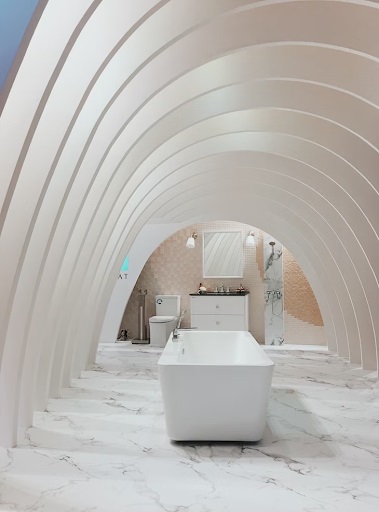Selecting the right material for your bathroom countertop is crucial in terms of both aesthetics and functionality. Among the various options available, solid surface bathroom countertops have gained significant popularity. In this comprehensive guide, we will compare different solid surface bathroom countertop materials, helping you make an informed decision for your bathroom remodeling project.
Solid Surface Bathroom Countertops: An Overview
Solid surface bathroom countertops are engineered materials made from a combination of resins, minerals, and pigments. They offer a seamless and non-porous surface that is resistant to stains, scratches, and bacteria. Popular solid surface brands include Corian, Wilsonart, and Swanstone.
Quartz vs. Solid Surface: A Comparison
Quartz and solid surface are two popular choices for bathroom countertops. While quartz is a natural stone material, solid surface is synthetic. Quartz countertops are highly durable and resistant to heat and scratches. Solid surface countertops, on the other hand, offer more versatility in terms of colors, patterns, and design options.
Granite vs. Solid Surface: Analyzing the Differences
Granite countertops are prized for their natural beauty and durability. However, solid surface bathroom countertops have their own set of advantages. Solid surface is non-porous, making it resistant to stains and growth of bacteria. It is also easier to repair and maintain compared to granite.
Laminate vs. Solid Surface: A Look at the Pros and Cons
Laminate countertops are a budget-friendly option, but they lack the durability and longevity of solid surface bathroom countertops. Solid surface offers a seamless look without visible seams, while laminate countertops may show edges and corners. Additionally, solid surface countertops can be repaired if damaged, whereas laminate cannot.
Concrete vs. Solid Surface: Comparing Features
Concrete countertops have gained popularity due to their modern and industrial appearance. However, solid surface bathroom countertops provide more flexibility in terms of design and customization. Solid surface offers a wider range of colors, styles, and edge profiles, allowing you to achieve a customized look that suits your bathroom décor.
Conclusion
Choosing the right material for your bathroom countertop is a critical decision. When comparing different options, solid surface bathroom countertops stand out for their versatility, durability, and easy maintenance. Whether you’re considering quartz, granite, laminate, or concrete, solid surfaces offer unique advantages, including non-porous surfaces, stain resistance, and a wide variety of design possibilities.
Ultimately, your choice should depend on your specific needs, budget, and personal preferences. Consult with a professional to explore the various solid surface brands and styles available in the market. By selecting a solid surface bathroom countertop, you can create a stylish, functional, and long-lasting centerpiece for your bathroom.











